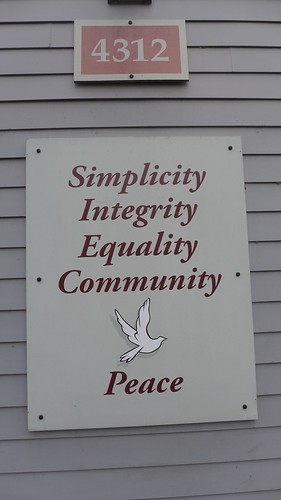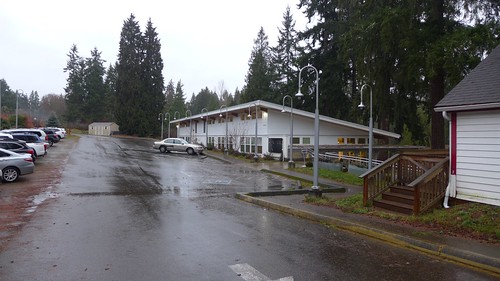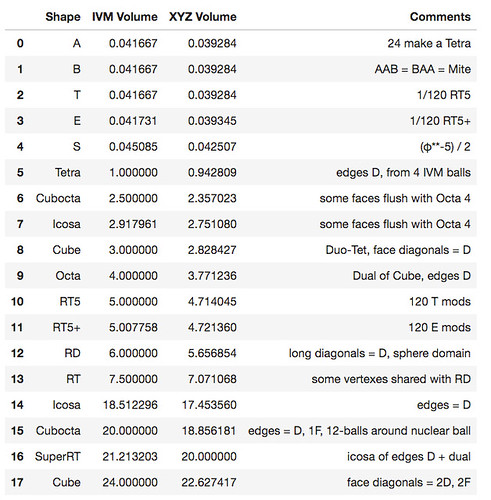I noticed yesterday (First Day) that Multnomah Friends, the Adult Religious Education Committee in particular, has instituted a new practice of pairing any visiting minister, with a local anchor, a peer.
In the example I witnessed, a visiting minister from another group came by to express a leading, one might say to do some market research, some field testing. Quakers encounter "leadings" as in promptings from God (superuser, root) and feel a need to respond in some way.
The visiting minister, let's call him Bob, has a background in journalism and knows the power of words. The exercise he proposed was to have participants randomly pick a card, but not turn it over to see the word printed on the face until cued to do so. There's more to it than that of course.
In cahoots with Bob, one might put it, was our local minister, a Friend already embedded within our Multnomah Meeting and familiar with its ways. Lets call her Alice.
What if Bob were way out there, in terms of expectations? The concept of "outside minister" might extend to become ecumenical to the point where our visitor is quite exotic in the context of Stark Street. The anchoring minister, Alice, might then play an active role in achieving some equilibrium, to the point of pushing back (figuratively under normal circumstances).
Think of an invited teacher, such as myself, prattling on about triangular and tetrahedral numbers to a math class. Their regular classroom teacher would most likely be the Alice.
Alice knows her students and provides me with guidance and direction, both beforehand, during, and perhaps in postmortem, regarding how I'm likely to get a best reception, given we're all hoping for good value, and what modifications I might make before next time (hypothetically).
In this particular case, our Alice was not required to intervene so much as dovetail with the flow, because our visiting minister was an old hand in our midst, a former clerk of the meeting. He heads up a satellite worship group these days, but could hardly be considered exotic.
Speaking of Stark Street, I remember one night standing in the middle of it, next to this same Bob (then clerk) and gazing up into a darkened tree next to the meetinghouse. A would be mayor of Portland had climbed it in protest. The police and fire departments had their equipment on the scene and were trying to talk him down.
The card game consisted of 30 "Quaker words" (such as truth, light, silence, integrity...) such that (30)(31)/2 = 496 pairings were possible (a triangular number). The impromptu interest groups would pair randomly chosen words to extract new meaning, a "gift" one might put it, to share with the whole group later. The name of this exercise: Between Words [as I'm reminded by a postmortem email from Bob].
Neither Bob nor Alice participated in the exercise; they were "overseers" (a term present day Quakers tend to shy away from). The market research angle was to offer Bob some feedback on how to maybe fine tune the exercise. Example feedback: many card games let us put a card back in exchange for a different one; might we incorporate such a step?
Given Bob and Alice, you might be asking about Eve, the theoretical 3rd party in any communication, and potentially able to disruptively penetrate a private channel between Bob and Alice. Here I might say that Bob and Alice have a common investment in keeping their channel secure and protected from disrupting factors, such as environmental noise.
The Biblically minded may find it distasteful that cryptography makes Eve be the bad guy again, as if she hadn't already suffered enough since the talking snake chapter. Think of Eve as a pun on "eavesdropper" and lets give her the power to listen in and not be disruptive at all i.e. she too is supportive of Bob and Alice, who may not realize she's even there.
Another innovation of the Adult Religious Education Committee, as a preamble to the exercise, was to talk about the importance of language, including language preservation, especially native languages such as that of the Multnomah people, for whom the meeting was named. This theme resonated with what I'd been learning through the Tulalip Cultural Center during my recent north circuit car trip.










